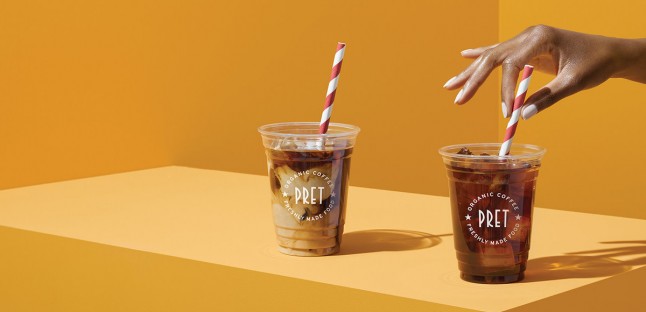Latest posts
A masterclass in creating value
What’s going on at parkrun?
Virtue-signalling all the way to the bank
Bud Light: brand purpose or virtue-signalling?
The Coddling of the American Mind, by Greg Lukianoff and Jonathan Haidt
Belonging, by Owen Eastwood
Such a simple thing
The Long Win, and The Scout Mindset
The Cult of We by Eliot Brown and Maureen Farrell
Coffee and covid modelling
By theme
Marketing strategy
Insight & metrics
Innovation & inspiration
Brand & positioning
Marketing communications
Business purpose
Leadership
By industry sector
Financial services
Retail
FMCG
Technology & start-ups
Consumer services
Business to business
Other sectors
By type
Books
Comment
Quotes
Thought leadership
External changes force people to change their habits, presenting both risk and opportunity. Pret A Manger’s monthly coffee subscription was launched in autumn 2020, aimed at restoring footfall post-pandemic. It doesn’t cost much to give hot drinks away; the price is mostly margin. Since the average customer buys five coffees a week, £20 a month for all the drinks you want is great value, and should drive loyalty, re-establishing the coffee habit as a Pret habit. As long as people sometimes buy food, or bring a friend, it’ll wash its face. But now thousands of customers are complaining, because Pret staff won’t give them the drinks they want: the expensive, time-consuming ones like frappes and smoothies.
They created a promotion intended to change behaviour, and then were surprised when behaviour changed. It reminded me of the infamous Hoover debacle of the 1990s, which nearly bankrupted them. People don’t buy vacuum cleaners often, and Hoover’s stock was piling up. So they came up with a cunning plan: you could claim two free return flights when you buy one of their products. The terms and conditions were supposed to make it hard to redeem, and to generate some income to cover the costs. Lots of consumer promotions are never redeemed. Big brands can print 50p money-off coupons on boxes of cornflakes or laundry detergent knowing most of them will end up in the recycling. But maybe the data relating to 50p coupons can’t be extrapolated to flights worth hundreds of pounds. It generated the kind of market stimulus central banks dream of: vacuum cleaner sales went through the roof. Rapidly followed by a glut of as-new Hoovers on the 1990s equivalent of ebay.
Both these companies estimated promotional uptake based on past behaviour. Reasonable, but insufficient. This is the sort of “black swan” that Nicholas Nassim Taleb advises companies to consider when they do their risk analysis. It’s not the small effects that matter. It’s the unlikely but huge ones that do the damage.
There’s a parallel here with covid modelling, though that has more positive results (no pun intended). Every time SAGE or alt-SAGE or whoever announces the latest scary extrapolation, some people change their behaviour. For every rebel who responds by going out more, or claims they do, there’ll be more who become more cautious. The modelling is instantly rendered wrong by voluntary behaviour change. The modellers are, in due course, ridiculed for their doomsday predictions. But what a marketing success: to get significant behaviour change without spending any money or political capital. The price is of course the modellers’ reputations, and the resulting public cynicism about their pronouncements, which weakens the public response over time. Tracking attitudes and claimed behaviour, as well as actual behaviour, helps to reveal the voluntary change and offset the cynicism.
So what’s next for Pret? So far they are sticking with their subscription, though their denials that there’s a problem will not wash with their most loyal customers, whose experience tells them otherwise. It’s time they fronted up. Dealing with reality is surely the most basic of business requirements. Painting a falsely-rosy picture to the media may be tempting, but no one can expect to do it to customers and get away with it.
Latest posts
A masterclass in creating value
What’s going on at parkrun?
Virtue-signalling all the way to the bank
Bud Light: brand purpose or virtue-signalling?
The Coddling of the American Mind, by Greg Lukianoff and Jonathan Haidt
Belonging, by Owen Eastwood
Such a simple thing
The Long Win, and The Scout Mindset
The Cult of We by Eliot Brown and Maureen Farrell
Coffee and covid modelling
By theme
Marketing strategy
Insight & metrics
Innovation & inspiration
Brand & positioning
Marketing communications
Business purpose
Leadership
By industry sector
Financial services
Retail
FMCG
Technology & start-ups
Consumer services
Business to business
Other sectors
By type
Books
Comment
Quotes
Thought leadership
